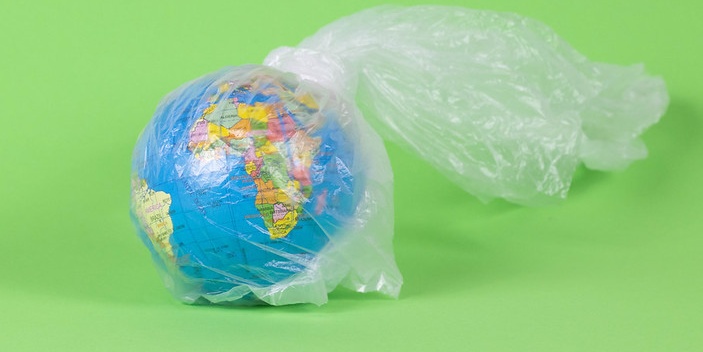
You have worked for many years for the World Business Council for Sustainable Development Council (WBCSD) and have just taken up the challenge of leading the We Mean Business coalition. How could we rethink the conceptual understanding of human development? What does human development mean today?
When I think about human development in the context of the COVID-19 pandemic – something that is concrete and specific, something that is challenging everything, something that has shown how interconnected and yet how fragile our world really is – I realize human development is really about building human resilience.
Resilience is the capacity to bounce back after a shock and to adapt to new circumstances. As humans, we have lived through many different shocks. Today it is COVID-19. We are seeing how this terrible epidemic has become more than just a health crisis – it is now also a major economic crisis impacting people and development around the world.
We can also see how those who are the most vulnerable are being impacted the most and are less able to respond. The crisis has highlighted the inequities in our society, and it is having a more detrimental effect on people who were already less resilient, and who are now having a very tough and difficult time.
When I think about human-centred development, I think about education and well-being as fundamental pillars for resilience. Education is one of the ways that people can become more resilient and live better lives. We have progressed enormously thanks to the internet and other technologies, but we need to do more around the world to ensure that children, and especially girls, can easily and safely access education.
Well-being is also important. But we need to extend the scope of what we consider to be the sources of well-being. Of course it is physical, and the pandemic is showing how essential it is that people have access to medicine and to health systems. But it is also illustrating the way that well-being is economic, as it requires having the financial means not only to survive but also to have a good life.
There is a third key component to well-being, and this is related to our natural environment. Air pollution, climate change, land degradation and biodiversity loss are impacting human physical and economic well-being. These environmental factors are key for well-being and are key for people to be resilient to shocks and impacts.
In short, I believe that one way to rethink the concept of human development today is to link it with resilience and to expand the human-centric focus with the integration of the natural environment as a central pillar. The pandemic has shown us how unprepared we were for a systemic shock, and we already know that there is another major shock coming, and that is climate change. We need to get ready for this so that we can become resilient.
You have a lot of experience in promoting the idea that business and industry are central actors in meeting the Sustainable Development Goals (SDGs) and contributing to resilient societies. Taking this lesson as a point of departure, what do you think are the most important challenges to human development today?
I believe that the most important challenges to human development today are the trade-offs between the economy, the environment, promoting development and addressing inequality. Finding the right balance is a challenge, and we are seeing some positive signs as companies begin to consider how to move to a newer system of stakeholder capitalism that is more equitable than traditional shareholder capitalism.
So we must consider how to balance these factors: the competing interests of the economy, the environment and social issues. For example, the economic recession that is already clearly looming today is going to have a huge impact on the development of people and it will significantly exacerbate social inequality. I believe that it is by seeing the interconnections among these stakeholder groups that we can find a way forward.
For example, we know that a well-performing economy depends on people who are healthy, who are satisfied, whose basic needs are met. And this means people require a healthy environment. So, there are difficult trade-offs between these issues but there are also some multipliers. What matters most is to ensure that we can make sustainable development a profitable business model – so that it is good for the planet and good for people. This will in turn create positive benefits for the economy as well as social well-being.
Tells us more about what needs to happen to make human-centric sustainable development more profitable.
The first thing is that we need to internalize the costs of environmental and social impacts so that it is reflected in the prices of goods and services. This is an exercise in pricing the cost of nature, emissions and also pricing social costs. Until now, these concepts of nature-pricing and social-pricing didn’t really exist. But it is imperative that we start operationalizing them, because at the moment those costs are included in the goods and services we purchase. If we correctly price the real cost of producing goods and services, we will provide an incentive for companies to reduce those environmental and social costs and win a competitive advantage.
The second thing is that business needs to understand, assess and mitigate the real risks that are occurring both on the social side and on the environmental side. Before the crisis, we saw an increase in social unrest; riots in Hong Kong, in Chile and many other countries. Social discontent is in fact a fundamental risk for business. It makes companies anxious, because of course people are the lifeblood of business – they are the employees, customers and the suppliers of companies.
With the pandemic there is a clear set of problems and risks, just as there is with climate change. We need to use these moments when a particular risk is very visible to accelerate the change that is needed in order to address it. By including environmental, social and governance (ESG) risks in the financial reporting of companies, companies will make sure that they have the measures in place to mitigate them. The financial sector will take this into account in their capital allocation, and companies that manage to reduce these risks will have a lower cost of capital.
Integrating the cost and risk of externalities in the economic system will completely transform the economy so more sustainable projects will have a cheaper capital cost and their products will have a competitive advantage in the marketplace.
Many businesses are engaged with the Sustainable Development Goals (SDGs), but we see little real change. How can we make the idea of human development more impactful and influential?
I believe the most direct way to make human development more influential is for it to be translated in a way that measures the social and environmental risk and opportunities for companies. What are the concrete metrics that can help companies measure and track performance? How can the United Nations Development Programme (UNDP) help develop these?
While there has been a lot of progress on the measurement of climate change, for example, on the social side of things progress has been very slow. Although there is good work underway, for example with the Social Capital Protocol, we need more, and we need it to be mainstream rather than just receiving the attention of those who are leading the way. We need to create a stronger and more compelling narrative on why social and developmental dimensions are important for business, how social unrest impacts business, and why business needs to measure, track and report progress and achievement of metrics on human development.
What gets measured gets managed. An agreed framework for the measurement of human development will help companies measure, track and report progress and benchmark with other companies.
To conclude, what do you think is a meaningful definition of human development, keeping a business audience in mind?
To appeal to business, we must speak its language. At a very practical level, business understands the importance of skills, talent and the potential of people. I believe that any definition of human development that raises the important of these issues will be useful not only for business but also for the public sector.
Many companies that have complex supply chains and rely on many different people are making an effort to ensure that those people have decent jobs, decent working conditions, a good environment. These issues are very important, not only for the results of the company but also for the performance, sustainability and reliance of these employees within their supply chains.
There are good precedents for change. We can see how in recent years companies have become increasingly familiar with the importance of gender diversity and human rights. I think business realizes that more diverse companies – geographically, culturally and in respect of gender – are more successful. A team that has a lot of diversity brings out the best in everyone and is very enriching.
In this pandemic, and in other shocks, companies have seen that they can be very resilient – but if their people (consumers, employees, providers) are not resilient then they will struggle enormously.
In short, what makes companies resilient are resilient people and resilient societies. As UNDP rethinks the definition of human development, it should put resilience at the centre.

María Mendiluce sits on the Senior Management Team of the WBCSD, guiding over 200 member companies on transformative climate policy and energy transition. In addition to her role at WBCSD, María is also CEO of the We Mean Business coalition.
Cover image: by Marco Verch on Flickr